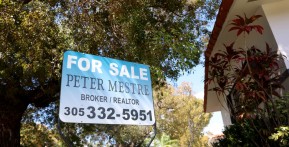It's not looking great for Chinese equities this year, and an analyst is calling on China's real estate market, its most-feared sector, Bloomberg reports.
China is the world's second-largest economy, and its shaky real estate market is a threatening segment that might bring about a hard landing from an abrupt correction. China Developers Index dropped roughly 35 per cent since its peak in 2015; however it's been through a stretch of marked outperformance in the year's last two months relative to Hang Seng China Enterprises' Index.
For JPMorgan's Ryan Li, the momentum is not likely to wane in 2016. More so, improving fundamentals in the real estate market should include attention both from traders and investors with a longer time horizon.
"For the first time in the past six years, the market could start looking at China Property not only from a trading perspective, but from a long-term stable demand/supply perspective," he asserts. "The sector could see a gradual but slow re-rate starting [in] 2016."
Li's call is keyed by reforms on the Chinese household registration system, or hukou, which will determine a citizen's access to benefits based on their permanent place of residency. Residents living in cities with urban hukou are only a little less than one fifth of the Chinese population, which means that they are deprived access to benefits while residing there.
With that, the Chinese model hearkens back to the English welfare system in the wake of the Poor Relief Act of 1662: paupers could obtain aid, but only in the parish in which they were settled.
According to Adam Smith in The Wealth of Nations, the requirement has dampened labor mobility, a critique still highly applicable 350 years later to modern-day China. Similarly, the inventory problems in China's real estate market can be addressed by promoting urbanization through applying safety nets for rural migrants.
"With the government's intention to encourage 'human-oriented' urbanization throughhukou reform, more rural residents will move to cities with better access to social security," predicted Li.
For Li, the urbanization goal will help bring the demand for homes higher by 3.5 to 4.5 million per year up to 2020 - a 33 percent growth relative to 2015.
However, achieving that entails a massive and sustained growth in the number of net new urban registrations looking at the previous five years.
Developers in the lower-tier cities will particularly benefit from such, according to the analyst.
"Changes might involve changing rules to allow individual ownership in rural areas and a 'go-back' mechanism; directives to induce the proper type of individual to get an urban hukou; and mechanism on how to provide sufficient funding to the local governments to support policy changes," wrote Li.













